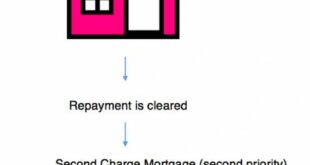Contents
- 1 Understanding Second Charge Mortgages
- 2 Pros and Cons of Second Charge Mortgages
- 3 Unraveling the Benefits of Second Charge Mortgages: A Comprehensive Guide
- 4 Understanding Second Charge Mortgages
- 5 When Do Second Charge Mortgages Make Sense?
- 6 The Key Advantages of Second Charge Mortgages
- 7 The Application Process and Eligibility Criteria
- 8 Risks and Considerations
Understanding Second Charge Mortgages
When financing your dreams, you might be familiar with traditional first-charge mortgages. However, there’s another option called a second-charge mortgage. In this post, we’ll delve into second-charge mortgages, exploring what they are, how they work, and when you might consider them.
What is a Second Charge Mortgage?
A second-charge mortgage, a secured or homeowner loan, is a financial product allowing you to borrow money against the equity you have in your property. Unlike a first-charge mortgage, which takes precedence, a second-charge mortgage is a loan secured against your home’s value. These loans are typically used for various purposes, including home improvements, debt consolidation, or financing major life events.
How Does a Second Charge Mortgages Work?
To obtain a second-charge mortgage, you must own a property with an existing mortgage and sufficient equity. The lender will assess your property’s current value and the outstanding balance on your primary mortgage to determine the amount you can borrow. Typically, second-charge mortgages have higher interest rates than first-charge mortgages, as they pose a higher risk to the lender due to their secondary status.

When Should You Consider a Second Charge Mortgages?
There are several situations in which a second charge mortgage may be a suitable financial option:
- Home Improvements: If you want to renovate your home and increase its value, a second-charge mortgage can provide the funds needed for these projects.
- Debt Consolidation: If you have multiple high-interest debts, such as credit cards and personal loans, you can use a second-charge mortgage to consolidate these debts into a single, more manageable loan.
- Financing Major Expenses: Whether it’s a wedding, education, or a once-in-a-lifetime vacation, a second-charge mortgage can help you fund significant life events.
- Poor Credit History: If you have a less-than-perfect credit score, you may find it challenging to secure unsecured loans. In such cases, a second-charge mortgage secured against your property could be viable.
Pros and Cons of Second Charge Mortgages
As with any financial product, second-charge mortgages have their advantages and disadvantages:
Pros:
- Access to Larger Sums: You can typically borrow more significant amounts with a second-charge mortgage than with unsecured loans.
- Lower Interest Rates: While the rates are higher than first-charge mortgages, they are often lower than unsecured loans or credit cards.
- Flexible Repayment Terms: Second-charge mortgages often offer flexible repayment terms tailored to your financial situation.
Cons:
- Higher Interest Rates: Compared to first-charge mortgages, second-charge mortgages have higher interest rates.
- Risk to Your Home: If you fail to make payments, you risk losing your home, as it’s used as collateral.
- Fees: Be aware of additional fees, such as arrangement fees and early repayment charges, which can add to the overall cost.
In conclusion, second-charge mortgages are a financial tool that can help you tap into your property’s equity for various purposes. It’s crucial to carefully consider your financial situation, the purpose of the loan, and the terms and conditions offered by lenders before deciding if a second-charge mortgage is the right option. Always seek professional advice and compare offers from different lenders to make an informed decision regarding your financial future.

Unraveling the Benefits of Second Charge Mortgages: A Comprehensive Guide
Understanding Second Charge Mortgages
Second-charge mortgages, often called “secured loans” or “second mortgages,” are a financial solution gaining popularity among homeowners. These loans allow individuals to access the equity they’ve built in their properties, providing benefits and flexibility. In this guide, we’ll delve into the intricacies of second-charge mortgages and how they can be a valuable financial tool.
When Do Second Charge Mortgages Make Sense?
The decision to pursue a second charge mortgage should not be taken lightly. These loans offer a range of benefits, making them a viable choice in various financial scenarios. Some everyday situations where a second charge mortgage might make sense include:
- Home Improvement: If you want to renovate or expand your property, a second-charge mortgage can provide the necessary funds without affecting your existing mortgage.
- Debt Consolidation: Combining existing debts into a single, manageable loan can be achieved through a second-charge mortgage, potentially at a lower interest rate.
- Avoiding Remortgaging: For homeowners on attractive first mortgage deals, taking out a second-charge mortgage can be more cost-effective than remortgaging and losing those favorable terms.
- Credit Issues: Second-charge mortgages can be an option for individuals with credit issues, as they are secured against your property, making them more accessible.
- Income Fluctuations: If your income varies, a second-charge mortgage can offer repayment flexibility.
The Key Advantages of Second Charge Mortgages
Second-charge mortgages come with several advantages that make them a compelling choice for many homeowners:
1. Equity Access: With a second-charge mortgage, you can unlock your property’s equity without needing to remortgage.
2. Lower Interest Rates: Second-charge mortgages often have lower interest rates than unsecured loans or credit cards, making them a cost-effective borrowing option.
3. No Impact on Existing Mortgage: Opting for a secured loan does not impact your mortgage. You can keep your favorable terms while accessing additional funds.
4. Flexible Repayment Options: Lenders typically offer a range of repayment options, including interest-only or capital and interest, allowing you to tailor the loan to your financial situation.
5. Accessible for Poor Credit: Second-charge mortgages are secured against your property, making them more accessible to those with less-than-perfect credit.

The Application Process and Eligibility Criteria
Obtaining a second-charge mortgage involves a structured application process. Lenders will assess your eligibility based on various factors, including your property’s value, mortgage, and creditworthiness. Here’s an overview of the application process:
1. Property Valuation: A professional valuation of your property is conducted to determine its current market value.
2. Existing Mortgage Assessment: Lenders will review your existing mortgage to ensure it’s in good standing.
3. Credit Check: A credit check is conducted to assess your creditworthiness, although more leniency is typically applied compared to unsecured loans.
4. Affordability Check: Lenders assess your income and expenditure to ensure you can afford the repayments.
5. Legal Process: A legal process will be involved, including a second charge on your property, similar to the process for your primary mortgage.
Risks and Considerations
While second-charge mortgages offer numerous benefits, they also come with risks that borrowers should be aware of. Some potential drawbacks include:
1. Increased Debt: Taking out a second-charge mortgage increases your overall debt, which may not be suitable for everyone.
2. Repossession Risk: Failing to meet your repayments can result in the lender repossessing your property, as it’s used as collateral.
3. Costs and Fees: Be prepared for fees for arranging a second charge mortgage, including valuation and legal costs.
4. Limited Availability: All lenders may not offer second-charge mortgages, so shopping around for the best deal is essential.
5. Variable Interest Rates: While often lower than unsecured loans, second-charge mortgage interest rates can be variable, potentially leading to higher repayments in the future.
In conclusion, second-charge mortgages are a powerful financial tool that can provide homeowners with access to equity and a range of benefits. However, they are not without risks; careful consideration and professional advice are essential before pursuing this option. Whether you want to renovate your home, consolidate debt, or address credit issues, understanding the nuances of second-charge mortgages can help you make an informed decision tailored to your unique financial circumstances.
 Ahammed World Afffaires
Ahammed World Afffaires



